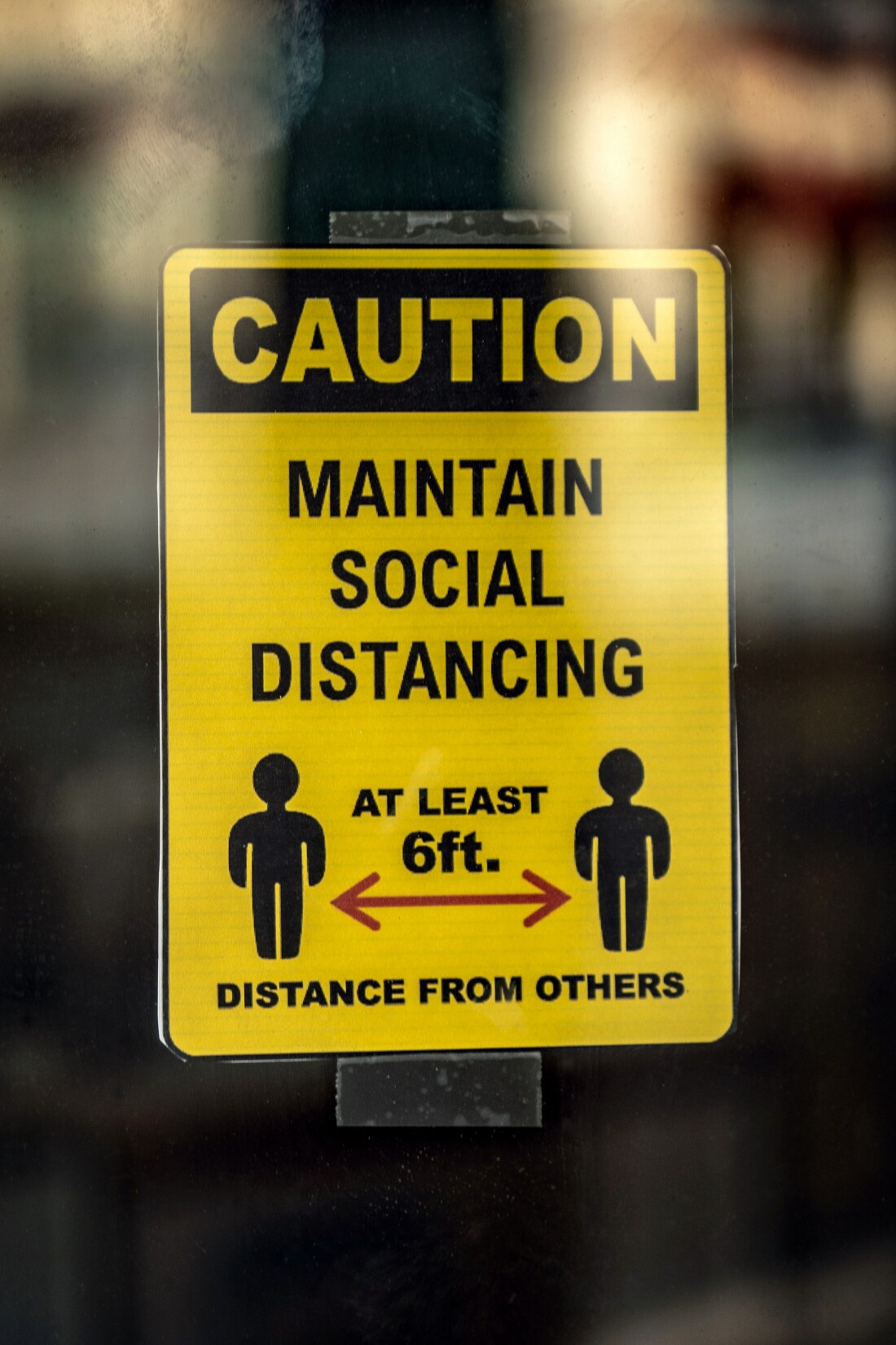Contact Us
Categories
- FTC
- Emotional Support Animals
- Service Animals
- Employee Agreement
- Remote Work
- Federal Trade Commission
- LGBTQ
- Minors
- United States Department of Justice ("DOJ")
- Work from Home
- Arbitration
- Workplace health
- Intellectual Property
- Trade Secrets
- Corporate
- Center for Disease Control
- Americans with Disabilities Act ("ADA")
- FFCRA
- Opioid Epidemic
- Occupational Safety and Health Administration (“OSHA”)
- COVID-19
- Families First Coronavirus Response Act
- H.R.6201
- Health Care Law
- IRS
- Paid Sick Leave
- Temporary Leave
- Treasury
- Coronavirus
- Worker Misclassification
- Labor Law
- Overtime
- Kentucky Unemployment Insurance Commission
- Sexual Harassment
- FMLA Retaliation
- Overtime Rule
- Employer Wellness Programs
- Genetic Information Nondiscrimination Act ("GINA")
- Kentucky minimum wage
- Minimum wage
- Paid Time Off ("PTO")
- Sick Employees
- Wage and Hour
- Employee Benefits
- Employment Discrimination Laws
- Employment Non-Discrimination Act ("ENDA")
- ERISA
- Human Resource Department
- Independent Contractors
- Kentucky Civil Rights Act (“KCRA”)
- OSHA
- Overtime Pay
- ADA Amendments Act of 2008 (“ADAAA”)
- Adverse Employment Action
- Americans with Disabilities Act
- Bring Your Own Device
- BYOD
- Civil Rights
- Compliance
- Department of Labor ("DOL")
- EEOC
- Employee Handbook
- Employee Misconduct
- Employment Law
- Fair Labor Standards Act (FLSA)
- Family and Medical Leave Act (“FMLA”)
- National Labor Relations Act (NLRA)
- National Labor Relations Board (NLRB)
- Pregnancy Discrimination Act
- Social Media
- Social Media Policies
- Title VII of the 1964 Civil Rights Act
- U.S. Department of Labor
- U.S. Equal Employment Opportunity Commission (“EEOC”)
- Uncategorized
- Union
- Volunteer
- Young v. UPS
- Amazon
- Department of Health and Human Services
- Federal contractors
- Kentucky Labor Cabinet’s Occupational Safety and Health Program (KOSH)
- Micro-unit
- Portal-to-Portal Act of 1947
- Security Checks
- Security Screening
- Specialty Healthcare & Rehabilitation Center of Mobile
- U.S. Supreme Court
- Cloud
- Creech v. Brown
- EEOC v. Hill Country Farms
- Equal Employment Opportunity Commission v. Kaplan Higher Education Corp.
- Lane v. Franks
- Mine Safety and Health Administration ("MSHA")
- Non-exempt employees
- Northwestern
- Shazor v. Prof’l Transit Mgmt.
- Web Content Accessibility Guidelines
- Whistleblower
- "Ban-the-box"
- 2013)
- At-will employment
- Berrier v. Bizer
- Bullying
- Chapter 11 Bankruptcy
- Chenzira v. Cincinnati Children’s Hospital Medical Center
- Citizens United v. Federal Election Commission
- Companionship services
- Compensatory time off
- Conestoga Woods Specialties v. Sebelius
- Consumer Credit Protection Act (“CCPA”)
- Crystalline Silica
- Davis-Bacon and Related Acts
- Drug-Free Workplaces
- Earnings
- EEOC v. Fabricut
- EEOC v. The Founders Pavilion
- Ehling v. Monmouth-Ocean Hospital Service Corp.
- Federal Stored Communications Act (“SCA”)
- Giant Food LLC
- Government employees
- Government shutdown
- Home Health Care Workers
- Illness and Injury Reports
- Job applications
- Jury duty
- Kentucky Department of Workers’ Claims
- Kentucky Wage and Hour Act
- KYSHRM 2013
- Mandatory vaccination policies
- Maternity Leave
- McNamara O’Hara Service Contract Act
- Medical Exams
- NFL Bullying Scandal
- Payroll
- Permissible Exposure Level ("PEL")
- Private employers
- Sebelius v. Hobby Lobby Stores
- Senate Bill 157
- SHRM
- Small Business Administration (SBA)
- Violence
- Wage garnishment
- WorkSmart Kentucky
- COBRA
- Contraceptive Mandate
- Defamation
- Defense of Marriage Act (“DOMA”)
- Employee Arrests
- Employee Forms
- Employee Hazards
- Employee of the Month Programs
- Employee photographs
- Employee Training
- Employer Group Health Plans
- Employer Mandate
- Employment Practices Liability Insurance
- Endorsements
- Federal Workplace Agencies
- FICA
- Form I-9
- Freedom of Speech
- Gatto v. United Airlines and allied Aviation Services
- Health-Contingent Wellness Programs
- HIPAA
- House Labor and Industry Committee
- KRS 391.170
- Litigation
- Madry v. Gibraltar National Corporation
- Megivern v. Glacier Hills Incorporated
- Motivating Factor
- Obesity
- Online Account Protection
- Online Defamation
- Participatory Wellness Programs
- Patient Protection and Affordable Care Act
- Pennington v. Wagner’s Pharmacy
- Pension Plans
- Play or Pay
- Posting Requirements
- Record Retention
- Reference checks
- Religious Employer
- Right to Work Bill
- Sequester
- Severance Pay
- Social Media Ownership
- Supervisor
- Supplemental Unemployment Compensation Benefits
- Tangible employment actions
- Tax Refund
- Telecommuting
- Title VII retaliation cases
- Troyer v. T.John.E Productions
- U.S. Citizenship and Immigration Services
- Unfair Labor Practice
- United States v. Quality Stores
- United States v. Windsor
- University of Texas Southwestern Medical Center v. Nassar
- Vance v. Ball State University
- Crisis Management
- Job Description
- Job Requirement
- Kentucky’s Whistleblower Act
- Labor and Pensions ("HELP")
- Municipal Liability
- PhoneDog v. Kravitz
- Public Sector Liability
- Social Networking Online Protection Act (SNOP)
- Social Privacy Laws
- Strategic Enforcement Plan (SEP)
- White v. Baptist Memorial Health Care Corp.
- Wilson v. City of Central City
- Workplace Politics
- Class Action Waivers
- Criminal Background Checks
- Employee Performance Reviews
- Employee Personnel Files
- Federal Arbitration Act (FAA)
- Federal Department of Labor
- Hiring and Firing
- Hosanna-Tabor Opinion
- Informal Discussion Letter (“EEOC Letter”)
- Kentucky Labor Cabinet
- National Labor Relations Act
- Retaliation by Association
- Salary Threshold
- Unemployment Benefits
- Workplace Discrimination, Harassment and Retaliation
- Business Insurance
- Communications Decency Act
- Employee Contracts
- Insurance Coverage
- Internet & Media Law
- Internet Defamation
- Non-Compete Agreement
- Uniformed Services Employment and Reemployment Rights Act
- USERRA
New Kentucky Law Protects Businesses from COVID-19 Liability
Kentucky recently joined a growing group of states who have passed measures to protect private businesses from coronavirus-related lawsuits. Senate Bill 5 cleared the Kentucky Senate in early March and the House soon thereafter. It became law on Monday, April 11, without the Governor’s signature.
 SB 5 shelters certain businesses from lawsuits related to “any injury or harm that allegedly occurred on or after the emergency was declared on March 6, 2020 and until the emergency declaration is withdrawn,” including actual or possible exposure to or contraction of COVID-19, services rendered to help curb the spread of COVID-19, and services performed that were outside the business’s normal operations that they undertook to limit the spread of COVID-19. This means, for example, a distillery that produced hand sanitizer during the shortage may not be liable for injuries arising from the use of the hand sanitizer, provided it was not purposely ineffectual. The affected claims are defined as any claim “arising from COVID-19” that occurred during the effective period of the emergency declaration and have a statute of limitations of one year.
SB 5 shelters certain businesses from lawsuits related to “any injury or harm that allegedly occurred on or after the emergency was declared on March 6, 2020 and until the emergency declaration is withdrawn,” including actual or possible exposure to or contraction of COVID-19, services rendered to help curb the spread of COVID-19, and services performed that were outside the business’s normal operations that they undertook to limit the spread of COVID-19. This means, for example, a distillery that produced hand sanitizer during the shortage may not be liable for injuries arising from the use of the hand sanitizer, provided it was not purposely ineffectual. The affected claims are defined as any claim “arising from COVID-19” that occurred during the effective period of the emergency declaration and have a statute of limitations of one year.
The new law breaks down this protection as to two classes of businesses or service providers. In one category, it strives to protect people and businesses that follow "any executive action to prevent the spread of COVID-19 during the COVID-19 declared emergency.” Presumably, failure to follow any of these government mandates would disqualify these service providers or businesses from liability protection, but the law is somewhat unclear.
Health care providers, grocery store workers, primary and secondary schools, mail services, financial institutions and other essential businesses and workers (a comprehensive list of which can be found on page 5 of the complete bill) fall into the second category of protection of businesses and service providers that receive governmental immunity as “agent[s] of the Commonwealth of Kentucky” under the new law, barring malicious, grossly negligent, and intentional misconduct. These “essential service providers” will not be liable for any COVID-related injuries under the bill’s broad protections, regardless of their efforts to follow executive orders and other government attempts to stem the tide of the pandemic.
 For employers, though, protections are not so liberating. The bill does not affect the applicability of KRS Chapter 338, which outlines employers’ responsibility to protect the health and safety of employees. Under these guidelines, an employee who contracted COVID-19 in the workplace may still have grounds for a lawsuit against an employer. COVID-19 workers’ compensation also remains unaltered. Liability is only affected for claims from customers, clients, or consumers.
For employers, though, protections are not so liberating. The bill does not affect the applicability of KRS Chapter 338, which outlines employers’ responsibility to protect the health and safety of employees. Under these guidelines, an employee who contracted COVID-19 in the workplace may still have grounds for a lawsuit against an employer. COVID-19 workers’ compensation also remains unaltered. Liability is only affected for claims from customers, clients, or consumers.
A coalition of Kentucky businesses, including big-name organizations such as Brown-Forman, the American Heart Association, a handful of County Chambers, the Kentucky Medical Association, Builder’s Association, Oil and Gas Association, School Boards Association and more, supported the bill. Supporters of the bill claim it will boost recovery for businesses who are struggling after a yearlong recession.
 Cynthia L. Effinger, Member with McBrayer, is located in the firm’s Louisville office. Ms. Effinger’s practice is concentrated in the areas of employment law and commercial litigation. Her employment law practice is focused on drafting employment manuals and policies, social media, wage and hour, non-compete agreements and workplace discrimination. Ms. Effinger can be reached at ceffinger@mcbrayerfirm.com or (502) 327-5400, ext. 2316.
Cynthia L. Effinger, Member with McBrayer, is located in the firm’s Louisville office. Ms. Effinger’s practice is concentrated in the areas of employment law and commercial litigation. Her employment law practice is focused on drafting employment manuals and policies, social media, wage and hour, non-compete agreements and workplace discrimination. Ms. Effinger can be reached at ceffinger@mcbrayerfirm.com or (502) 327-5400, ext. 2316. Claire M. Vujanovic, member with McBrayer, is located in the firm's Louisville office. Ms. Vujanovic's practice is concentrated in the areas of labor and employment law and includes NLRA compliance, drafting and reviewing employment manuals and policies, drafting severance, non-compete and employment agreements, and counseling clients related to overtime and wage and hour regulations, laws and claims and workplace discrimination. Ms. Vujanovic can be reached at cvujanovic@mcbrayerfirm.com or (502) 327-5400, ext. 2322.
Claire M. Vujanovic, member with McBrayer, is located in the firm's Louisville office. Ms. Vujanovic's practice is concentrated in the areas of labor and employment law and includes NLRA compliance, drafting and reviewing employment manuals and policies, drafting severance, non-compete and employment agreements, and counseling clients related to overtime and wage and hour regulations, laws and claims and workplace discrimination. Ms. Vujanovic can be reached at cvujanovic@mcbrayerfirm.com or (502) 327-5400, ext. 2322.
Services may be performed by others.
This article does not constitute legal advice.

